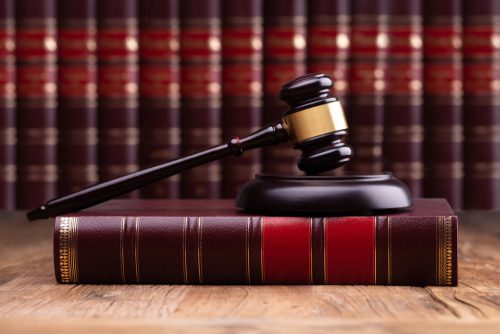The principal of sovereign immunity, which prohibits the suing of the state or political subdivisions (boroughs, cities, school districts, etc.), has been around for a long time and grew out of the old English theory of “the King can do no wrong.” That got tossed out by the Pennsylvania Supreme Court in 1978 and after a couple of years of proving that the King could do a lot of wrong, the Legislature passed two laws. One gave immunity back to the state with certain exceptions and the other gave immunity back to political subdivisions, also with certain exceptions. These exceptions allow the injured to sue the state or city.
In the last 20 years, rulings of the Commonwealth Court (which hears all appeals concerning the state or political subdivisions) have greatly narrowed two of these exceptions. One says that you can sue the state for a dangerous condition of realty owned by PennDOT, and the other is for the operation of a motor vehicle by a political subdivision.
Both of these exceptions were restored to their proper breadth in two recent cases by the Supreme Court.
Defining the “Operation of a Motor”
The motor vehicle exception says that you can sue a political entity if your case arises from the “operation of a motor.” Through a series of cases, the Commonwealth Court had narrowed the “operation of a motor vehicle” to only cover the actual movement of a vehicle. That shielded the state and political subdivisions from liability for all sorts of bad operation, like dropping off a bus passenger directly into a big pothole, closing the door on someone or parking in such a way as to cause an accident.
Restoring sanity to the discussion and overturning 30 years of precedent, the Supreme Court ruled that “operation” did not mean just movement but encompassed all sorts of actions with a motor vehicle, including where to park (see case example below), whether to use a turn signal, whether to turn lights on or off, and other instances.
The aforementioned case is Balentine v. Chester Water Authority, No. 119 MAP 2016 (Pa. Aug. 21, 2018 Mundy, J.) (Justices Todd, Dougherty, and Wecht joined in the majority Opinion) (Baer, J., concurring) (Saylor, dissenting, J.)
Let us help you!
Liability for PennDOT
The cases involving PennDOT had similarly gotten far afield from logic. It started with a case called Dean, which said that the Commonwealth could not be held liable for the failure to place a guardrail along the road.
Cases since have expanded to say nothing outside of the actual paved lanes of travel could be a basis for liability of PennDOT. Cagey v. PennDOT, 164 A.3d2 459 (Pa. 2018) involved allegations that a guard rail was negligently designed and installed, causing severe injuries to the plaintiff when the end of the guard rail penetrated the passenger compartment. Reversing years of lower court rulings, the Court found that PennDOT could be liable for negligent installation and design of a guard rail, even though it was off the surface of the lanes of travel.
Together, these two cases restore important rights to our clients and help correct a trend by the lower courts to favor the Commonwealth over its citizens. We have been taking on the Commonwealth and political subdivisions on behalf of negligently injured clients for over 30 years and will continue to do so, aided by this correction in the law of Pennsylvania.
If you have been injured in an auto accident as a result of negligence, May, Herr & Grosh can help. Contact our office today and speak with one of our attorneys. See how we can help you in your legal battle for fair compensation.



